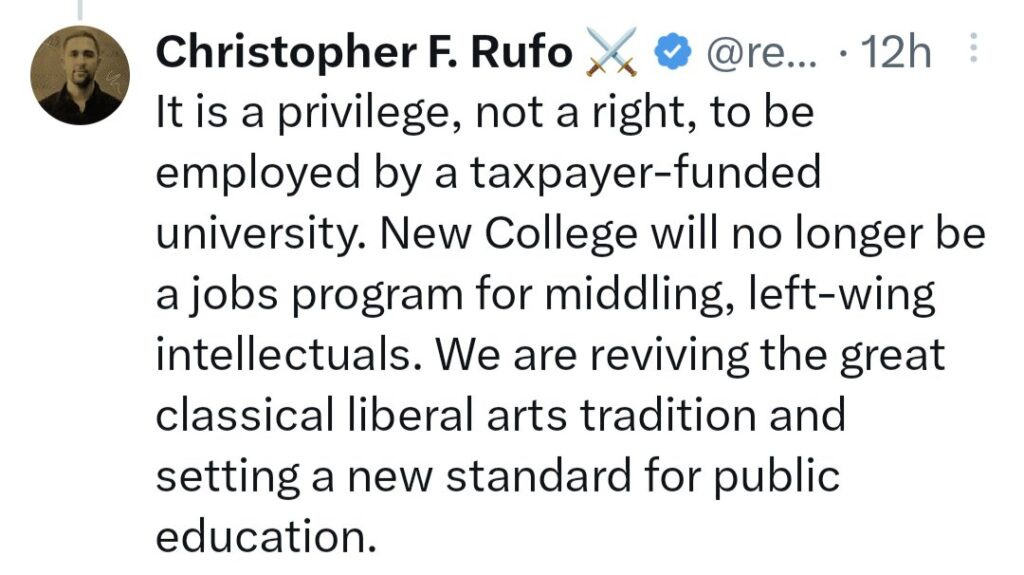
Florida is currently governed by a fascist who has made it one of his primary goals to take control of higher education in the state, mold it in a way that supports his ideology, and eliminate those who oppose his policies. The most overt example is his hostile takeover of New College, which recently fired a faculty member for expressing “leftist” views. The state also proposed banning gender and sexuality studies and critical race theory from public university curricula and curtailed tenure protections for its faculty.
So I was a bit surprised to open the Washington Post this morning to see a front-page (or its digital equivalent) story on the purported threat of “cancellation” that focused on a professor at the University of Central Florida. This person was fired (and then reinstated) not because he expressed views deemed unacceptable to the far right, but rather because he seems to be a racist. Here’s a comment from a student who took his course after he came back to UCF:
Several of Negy’s students said that they had signed up for his psychology course without knowing the professor had been fired — but that he had shared it with them during his first lecture.One student, a Black woman, said she thought Negy was a good teacher. But she was disturbed by his suggestion that, “statistically speaking, minorities are just not as smart as other people. I don’t know. I feel like that’s kind of offensive.” The student spoke on the condition of anonymity because she worried about criticizing one of her professors.
Asked about the student’s concerns, Negy said that he lectures about “observed differences” among races on test scores, but that he doesn’t have “training in genes” to assess why these differences exist.
Does the Washington Post really think that this person should represent the threat to academic freedom in Florida?
The thesis of the article is absolutely true — that there is sometimes a messy tension between academic freedom and the needs of the classroom. It is not easy to decide when a professor has overstepped the line. But articles like these distort the picture of the threat to higher education in America. It is not in clunky administrative systems that attempt, in good faith (it seems from these examples), to establish some basic standards for how professors should behave with regard to the classroom environment, but rather in a direct, sustained, and systemic attempt to destroy academic freedom itself.